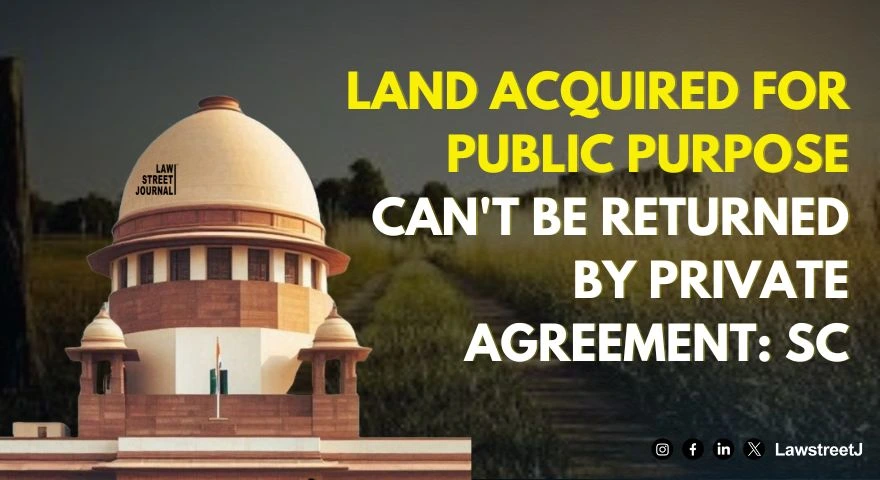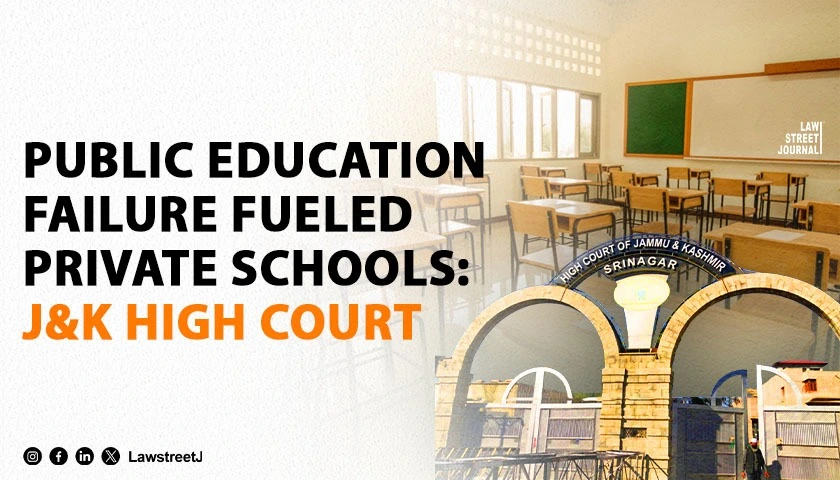NEW DELHI: The Supreme Court has said when the State uses its sovereign power of eminent domain and acquires land for a public purpose, such an exercise cannot be set at naught by the beneficiary, by entering into a private agreement shortly after the acquisition.
A bench of Chief Justice of India Sanjiv Khanna and Justice Sanjay Kumar said that validating such dubious enterprise by a statutory beneficiary of a compulsory acquisition would be nothing short of permitting a fraud on the exercise of the sovereign power by the State.
SC Rules on Land Acquisition: No Private Deals After Eminent Domain Use
The bench held that an agreement entered by the Delhi Agricultural Marketing Board in 1988 to return a portion of the land to Bhagwan Devi, who claimed to be the owner, was patently opposed to all tenets of law.
The only objective of the said agreement was to thwart the compulsory acquisition of the subject land by returning a portion thereof, the bench noted.
Supreme Court Verdict: Land Acquired for Public Use Can’t Be Privately Returned
It allowed an appeal filed by the Delhi Agricultural Marketing Board and set aside the judgments of the Delhi High Court's 2013 judgments and arbitral award of 2007, observing the case involved astonishing events, turning the law of land acquisition on its head.
In the matter, Delhi Agricultural Marketing Board decided to transfer half of the land acquired for establishing an agricultural market back to one of the landowners by an agreement in 1988.
“When the State uses its sovereign power of eminent domain and acquires land for a public purpose, as in the case on hand, i.e., for establishment of a grain market under the control of a statutory Board, such an exercise cannot be set at naught by the beneficiary of such acquisition, viz., the statutory Board, by entering into a private agreement shortly after the acquisition so as to reverse the usage of the power of eminent domain by the State,” the bench said.
The court said the agreement dated September 30, 1988, was clearly in contravention of the fundamental policy of Indian law and the arbitral award dated July 10, 2007, upholding the said agreement, was equally so.
It pointed out the fact that the preparation of the agreement of September 30, 1988, by purchase of stamp papers for the same and the drafting thereof, took place even before the matter was considered by the board in the meeting held on September 29, 1988, clearly revealed that there was something suspicious about the transaction.
“Given the further fact that the only objective of the said agreement was to thwart the compulsory acquisition of the subject land by returning a portion thereof to Bhagwan Devi, the agreement was patently opposed to all tenets of law," the bench said.
In the case, the government had acquired 33 acres of land under the Land Acquisition Act, for the establishment of a grain market in Narela, Delhi. The acquired land included an extent of 6 bighas and 10 biswas situated in Khasra Nos. 296, 298 and 303 of Village Mamoorpur. Bhagwan Devi claimed ownership over this smaller extent under registered sale deeds of the years 1959 and 1971.
Possession of the acquired land was taken and handed over on September 22, 1986, to the Agricultural Produce Marketing Committee, Narela, under the control of the board. In 1987, Devi challenged the acquisition of her land before the Delhi High Court.
"It is at this stage that the story took a curious turn. The board resolved to settle the matter out of court with Bhagwan Devi by releasing and returning to her half of the acquired extent claimed by her and retaining the remaining half, i.e., 3 bighas and 5 biswas," the bench said.
In November 1988, the board decided to review the matter and filed a recall application in the High Court but it allowed the respondent to pursue her remedies.
The woman initiated arbitration under the agreement, and an arbitrator ruled in her favour, directing the board to execute a conveyance deed for the returned land. The arbitral award was challenged by the board, but both the single judge and division bench of the high court upheld the award.
“The statutory scheme of the laws applicable to the Board at different points of time speaks to the contrary as it manifests that there must be a document of conveyance for the Board to acquire and hold such land. Admittedly, no such document was ever issued by the Government actually transferring the subject land to the Board, whereby it could claim absolute rights over it," the bench said.
Allowing the appeal, the court said the courts exercising jurisdiction under Sections 34 and 37 of the Arbitration and Conciliation Act, 1996, erred grievously in not setting aside the arbitral award that had upheld the agreement.

















